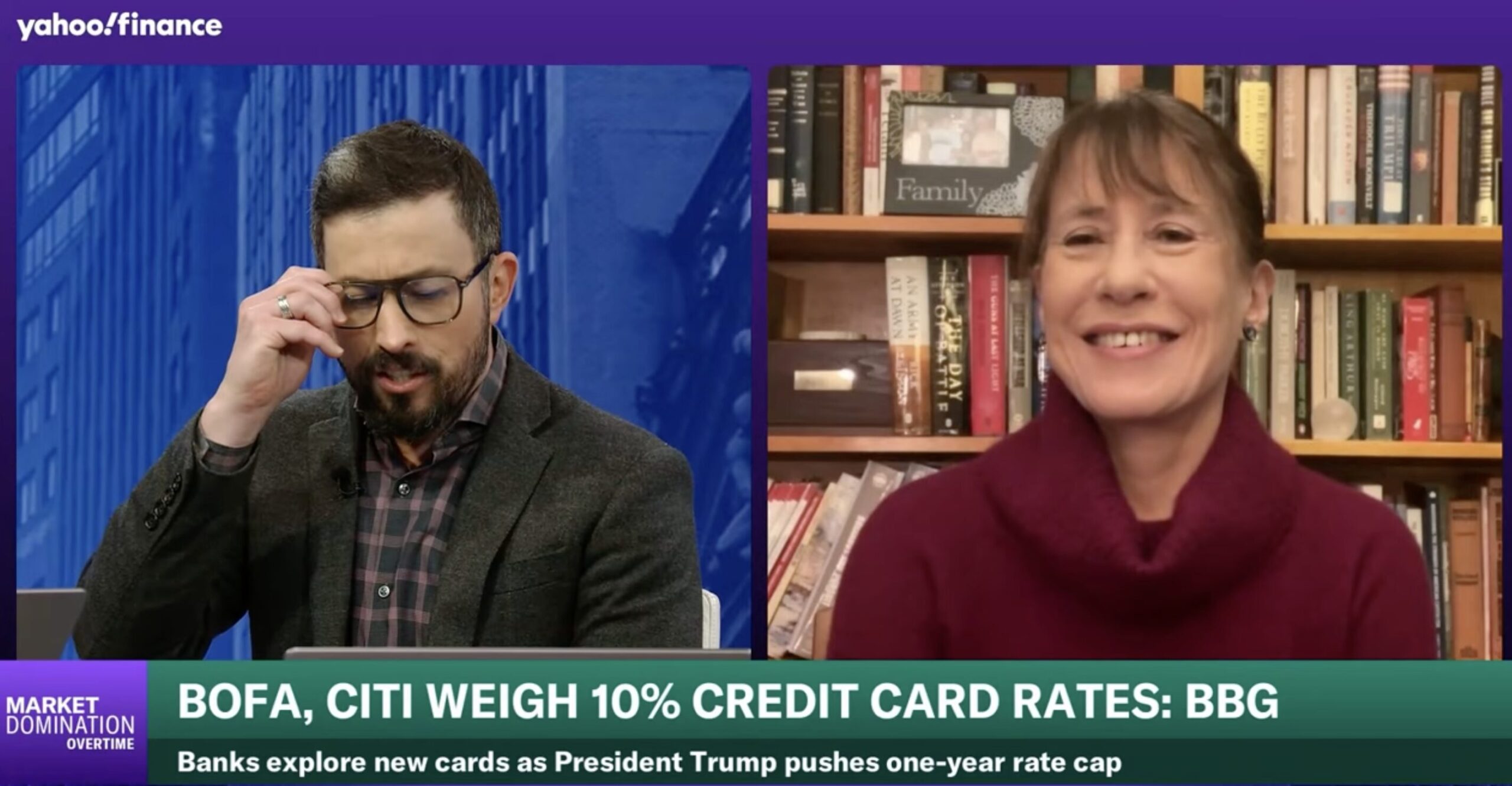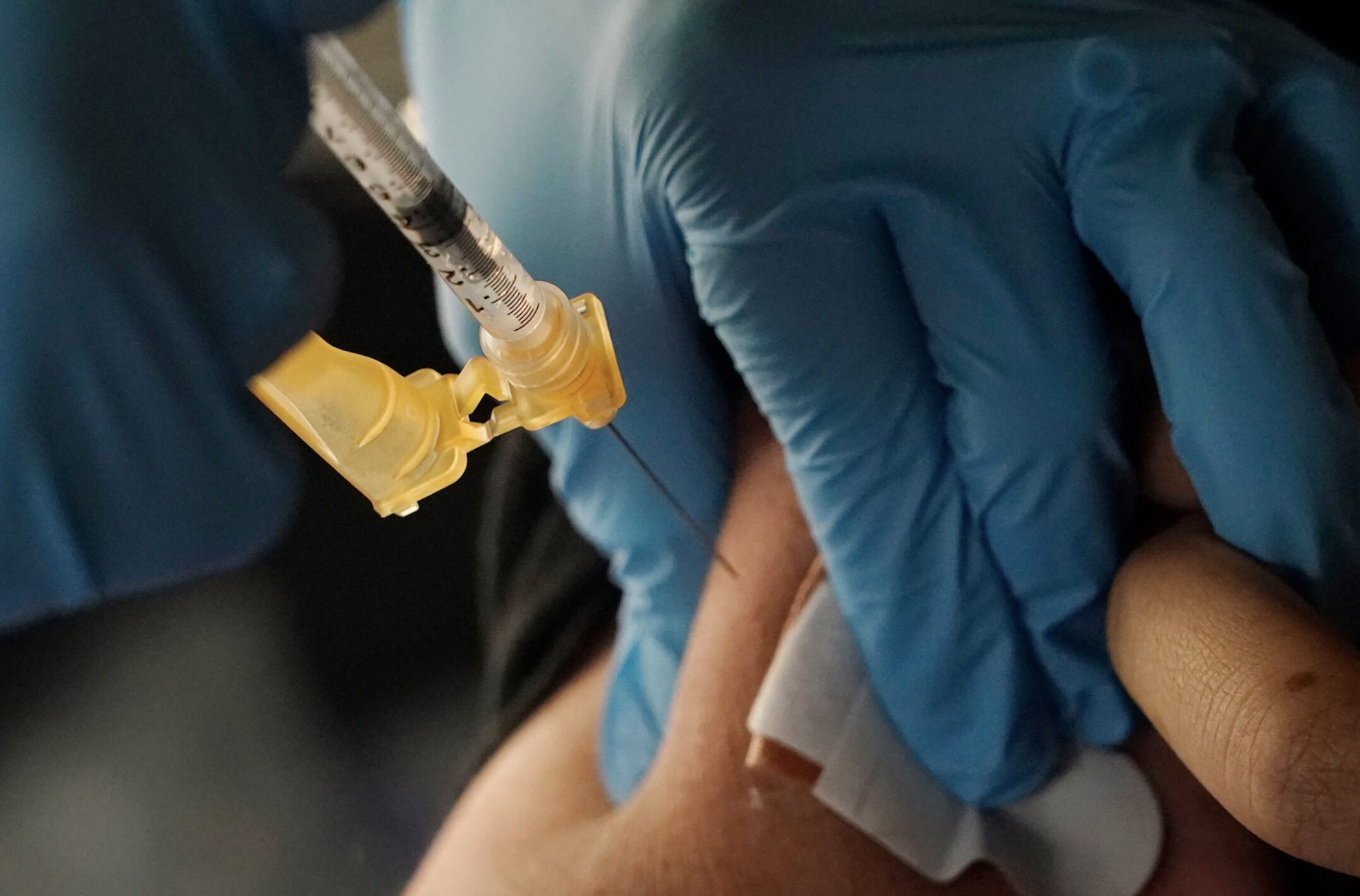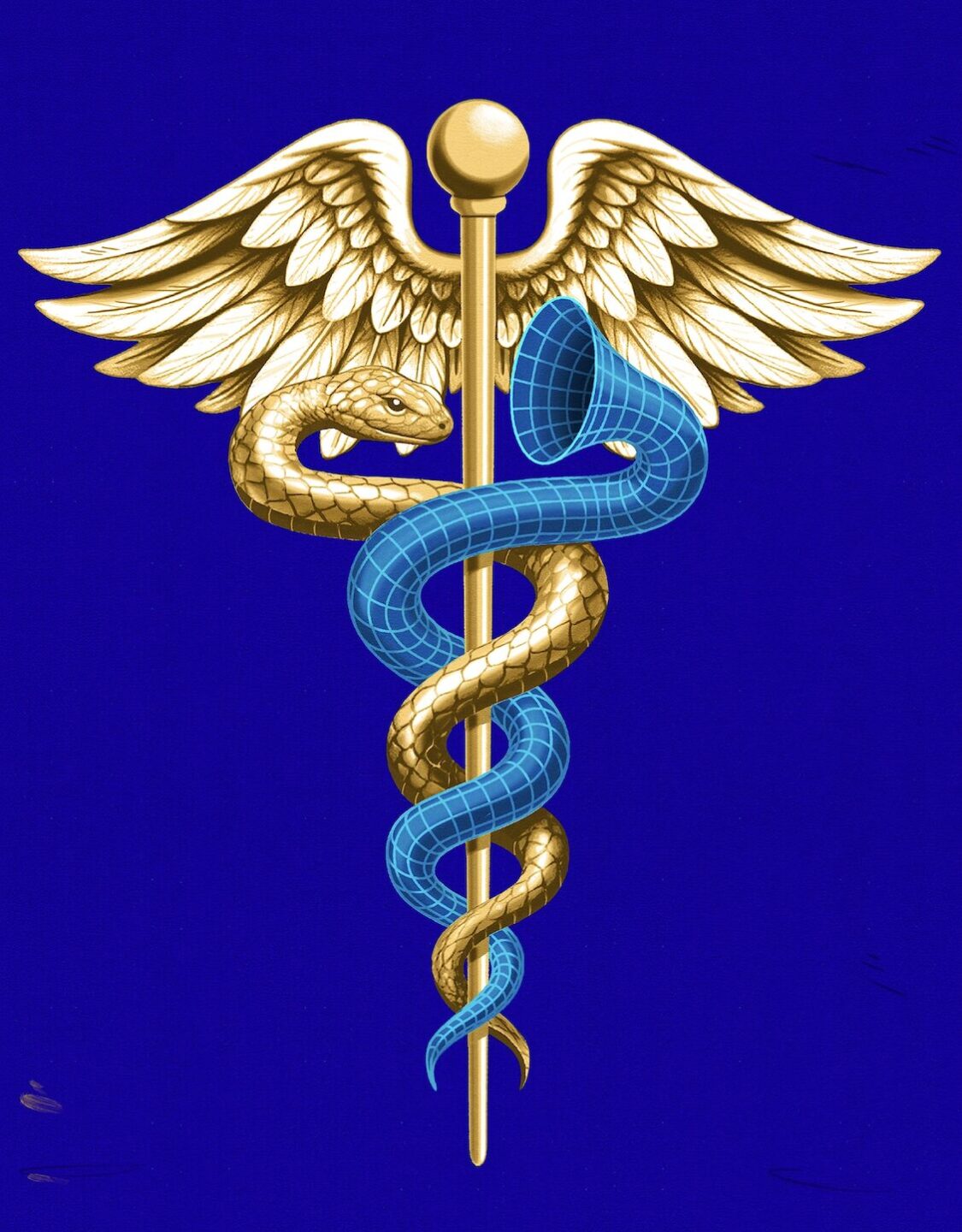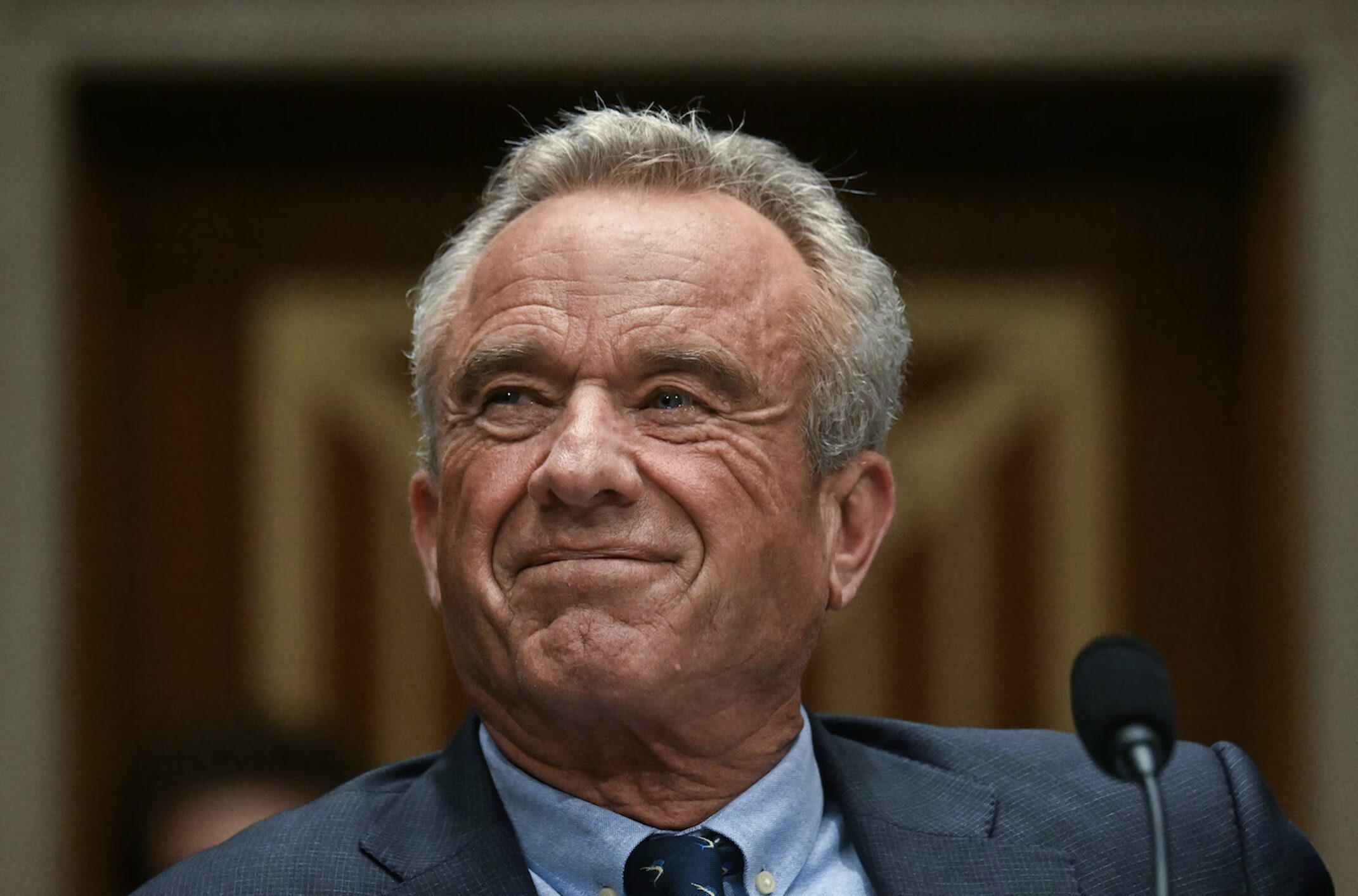Leana Wen Discusses Patients’ Different Priorities, Bad COVID Policies
Throughout the COVID-19 pandemic, Leana Wen, MD, MSc, has been one of public health’s most vocal advocates, offering smart analysis and calling out problems with the federal response. One of the most significant contributors to U.S. pandemic failures, she said, has been the prolonged devaluing of public health.
That’s part of the reason Wen set out to write a book on the role that public health silently plays in all Americans’ lives. She initially landed on telling the story of the city of Baltimore and the public health successes achieved under her watch as health commissioner there. But the book also turned into a memoir, as Wen realized her story of immigrating to the U.S. from China as a young girl was itself one of public health.
For instance, seeing her schoolmate die of an asthma attack because his grandmother refused to call authorities for fear of being deported provided her first window into how “people have different worths depending on their socioeconomic status,” Wen said in an interview.
Wen spoke at length with MedPage Today about her new book, Lifelines: A Doctor’s Journey in the Fight for Public Health, as well as current challenges with the U.S. COVID-19 response.
An edited version of that conversation follows.
In your book, you tell the story of how you immigrated to the U.S. from China at age 7, and your family had very limited resources. By 13, you were already in college. How did you make that happen?
Wen: When my family and I first came to the U.S., we depended on a lot of services. We depended on Medicaid and the Children’s Health Insurance Program. We depended at times on public housing and SNAP [Supplemental Nutrition Assistance Program]. I went to public schools, including college. So I had an acute awareness as a child of what it means to go without access to care. As a result, I was really motivated to go into medicine, and specifically into emergency medicine, because I never wanted to turn people away because of inability to pay or where they come from.
I was really fortunate growing up to have incredible mentors. When I first started college, I had this dream of becoming a doctor, but I was too ashamed to even tell anyone because I frankly didn’t think that anyone would believe me. So I started telling people that I wanted to be a lab tech because my parents had a friend whose daughter was a lab tech — and that people would believe.
It took quite some time to get it out of me that I actually wanted to become a doctor. My mentors, Dr. Raymond Garcia and Dr. Donald Paulson, helped me connect with their previous mentees who were now in medical school or residency. So I asked them a lot of questions. There are so many unwritten rules of the road that those of us from disadvantaged backgrounds just don’t know about. I didn’t know that people were taking test prep classes. I didn’t know that there were opportunities for shadowing someone in a hospital. I had not done these things. I didn’t know that the community service I was doing actually counted towards applying to medical school. I don’t know that I would’ve even written about that on my application because I didn’t know that’s what people are looking for.
I only applied to MD/PhD programs because they were full scholarship programs. I was fortunate, but so many students who would otherwise become clinicians who really want to serve the communities they come from are weeded out early in the process because they can’t fathom that amount of medical school debt.
There are many heartbreaking examples in your book about access to care issues. How did these experiences influence your career in medicine?
Wen: One that sticks out is about this boy who I used to walk to school with. One day he was having trouble breathing. I still remember this very well because I remember the fear in his eyes. I understood that fear, because I have asthma myself. I remember saying to his grandmother, “we have to call the ambulance, we have to get him to the hospital.” I used to be hospitalized for asthma a lot, so I knew at some point you have to go for medical care.
His grandmother was too afraid to call for help because she was afraid that their family would be deported because they were undocumented. This boy ended up dying.
It was traumatic for so many reasons. This was someone I knew. This was a child. It was also because of asthma, which to me was a preventable, treatable illness. And it was my first awakening to the fact that in our society, people have different worths depending on their socioeconomic status, depending on their immigration status. And I did not want to ever be in a position where I would have to deny anyone life-saving care because of their background.
How did you go from the ED to public health?
Wen: I never really learned about public health when I was in medical school. I had a couple of professors who talked about health disparities, and maybe I heard the terminology of “social determinants of health,” but I didn’t really understand this entire discipline except I experienced it working in medicine.
While on rotation in medical school, there was a young man who came in with status epilepticus. The reason he had this long seizure was that he couldn’t afford insurance and therefore couldn’t pay for his seizure medications. By the time he ended up going to the hospital, there was no way for him to recover. As a result, his wife decided to withdraw life support. He left behind two young kids.
There was another child with severe asthma who came to the ED a lot. It was because he and his mother were homeless and they lived in shelters where people around them smoked. They had also lived near an incinerator that was spewing out irritants that were triggering his asthma.
There were so many instances where people’s lives were impacted or prematurely ended because of something that was entirely preventable. I knew that what my patients needed wasn’t something I could provide within the four walls of the hospital. It was all these other things that are part of public health: housing, the air that we breathe, the food that we have access to.
You became Baltimore’s health commissioner at age 31. What are some of your initiatives you’re most proud of?
Wen: One was our program to combat the opioid epidemic. That was one of my top priorities because it tied into every aspect of our city: the obvious aspect of health, but also criminal justice and the economy. Working in the ED, I’ve given Narcan [naloxone] to many people, and I’ve seen how it saves lives.
We got legislation changed in the state of Maryland so that I became the single prescriber for naloxone to the entire city of Baltimore. Then I issued a standing order or a blanket prescription for naloxone to every resident in our city. We also began training people to use it. Within a 3-year period, from getting the policy changed to delivering services and getting Narcan into people’s hands, we saved the lives of more than 3,000 Baltimoreans.
The second program is B’more for Healthy Babies, where we convened more than 150 public and private partners to work on reducing infant mortality. Within a 7-year period, the program — which is a combination of home visitation, providing housing, teaching the ABCs of safe sleep and other interventions — reduced infant mortality in Baltimore by 38% and closed the disparity between Black and white infant mortality by more than 50%.
There was also our Vision for Baltimore program. There was a study that found that about 10,000 of our school-age kids needed glasses, but were not getting them. Certainly glasses are not the only thing you need in order to succeed at school, but I don’t think we need another study to tell us that it could impact educational outcome. So we set up another public-private partnership with Johns Hopkins, Warby Parker, and a national nonprofit called Vision to Learn. We were able to start this program that aims to get eye exams and glasses to every child who needs them right in their school without the child having to miss class or their parents missing work.
I think these are examples of how the problems in public health can be very big, and that everything impacts something else. That’s the definition of social determinants of health.
However, if there is a commitment to a goal, you can move the needle. It also shows that disparities are not a zero-sum game. You don’t take years of life away from one group of people to add to another group of people. You can focus on equity and improve health for all.
Where should the U.S. focus to begin addressing all of its challenges with healthcare disparities?
Wen: I think people should begin where they are. Sometimes the problems that we face in public health can seem so big that we’re often met with decision paralysis. But there are things that we can do right now, depending on the vantage point that we have.
A nephrologist or a cardiologist can look at the underlying health issues that they’re treating and work on food access, for instance. People need to start somewhere. Disparities don’t go away on their own. The inequities that we have will keep on perpetuating, unless we have intentional focus to address them.
You’ve been very outspoken about the U.S. pandemic response. Recently you’ve said the CDC should be tracking mild breakthrough infections. Why?
Wen: The public health establishment criticized the Trump administration when they made comments about not doing testing, because without testing there wouldn’t be cases. Well, that’s clearly not true. If you don’t test, the cases are still there. You just don’t know about it.
This is not political or partisan. We need to hold the Biden administration to a similarly high standard when it comes to following the science as well. I have yet to hear a coherent explanation of why we are not tracking mild breakthrough infections.
We need to understand how many there are, in order to give people guidance on what to expect. We also need to know for the purposes of public health information. If it turns out that the people who are getting breakthrough infections are older, or have certain medical illnesses, we need to know what those illnesses are so that we can help to advise those patients perhaps to get booster shots sooner.
We also need to know that if you do get a breakthrough infection, are you likely to have more mild COVID? And I think the most critical question is, if you have a breakthrough infection, especially with the Delta variant, are you able to transmit the virus to other people?
We don’t know the answer to these questions, and if we don’t study them, we won’t know the answer. That’s why I and two other colleagues wrote a JAMA viewpoint about the importance of looking for trouble. We hope trouble isn’t there, but if you don’t look for it, how do you know? Certainly we should have learned this from the Trump administration. We can’t make this mistake again, just because there’s a different president.
You’re also challenging the CDC guidance that vaccinated people don’t need to wear a mask. What’s wrong with that policy?
Wen: I was against this policy in the first place, not because the science was wrong. Two months ago, the science was correct. But saying that people don’t need to wear masks but without having proof of vaccination meant there was an honor system. We saw what happened, which is that the unvaccinated took off their masks. Therefore we are now having major surges of COVID-19 across the country, mostly in the unvaccinated.
However, that’s now spilling over to the vaccinated. We don’t have those numbers, but anecdotal reports of breakthrough infections are very concerning to me. What about parents of unvaccinated children? Obviously I’m vaccinated, I’m very well protected from getting severely ill, but what about my children? Am I able to transmit COVID and infect them even after being vaccinated?
There’s a lot unknown right now, and I think it’s important for the CDC to acknowledge that they made a mistake.
What does the U.S. need to do to at least be better prepared for the next pandemic, and to protect the future of public health here in general?
Wen: One is to embed equity in our work because disparities don’t go away on their own. COVID has certainly unmasked the systemic inequities that got us to where we are.
The second is that we need to strengthen our federal health agencies. A strong federal presence actually empowers local and state health departments. It made no sense at the beginning of the pandemic when states were bidding against one another for PPE and tests.
The third is we definitely need to strengthen our local and state public health infrastructure. These entities have undergone severe budget cuts. I know, having been there myself, that they’ve lost 30% of their workforce in the last 20 years and were really bare bones prior to COVID.
So my hope is that we’ve seen the consequences of undervaluing and not investing in public health. I think it is important for us to not just talk about pandemic preparedness when it comes to public health. We need to talk about how public health is much more than infectious diseases.
Look at the individuals who are predisposed to severe outcomes from COVID: those with chronic illnesses like hypertension, diabetes, and heart disease. In Baltimore, one in three African Americans lives in a food desert compared to one in 12 whites. Is it any surprise that African Americans are more likely to have hypertension, diabetes, and heart disease? We really need to be attentive to all these other aspects that are involved in public health as well.
Relevant and recent posts






